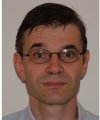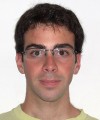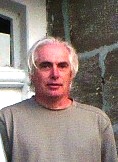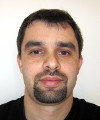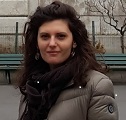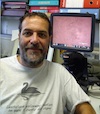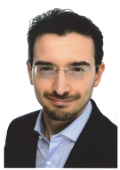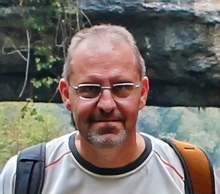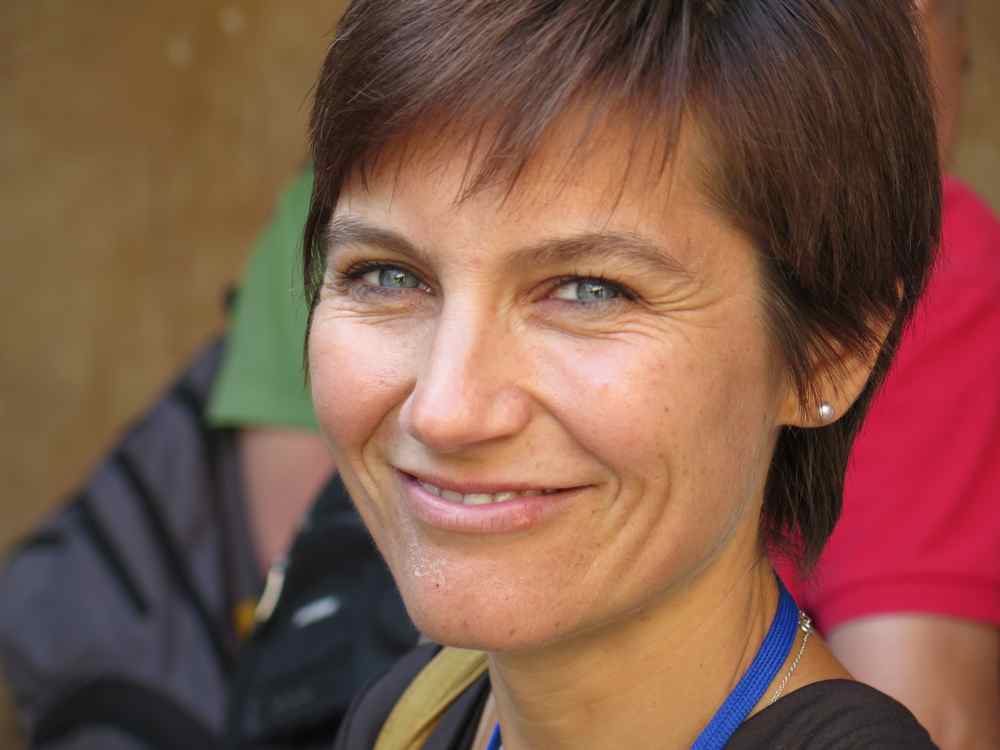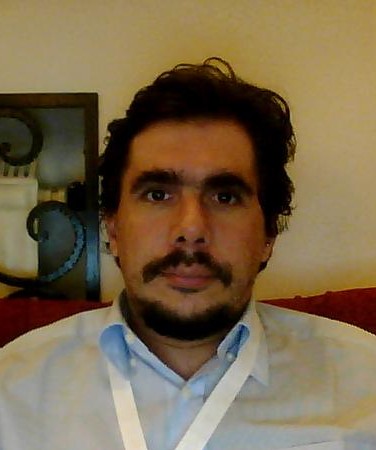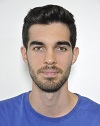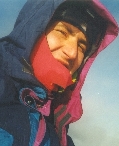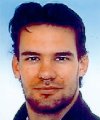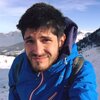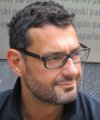Studiare
In questa sezione è possibile reperire le informazioni riguardanti l'organizzazione pratica del corso, lo svolgimento delle attività didattiche, le opportunità formative e i contatti utili durante tutto il percorso di studi, fino al conseguimento del titolo finale.
Calendario accademico
Il calendario accademico riporta le scadenze, gli adempimenti e i periodi rilevanti per la componente studentesca, personale docente e personale dell'Università. Sono inoltre indicate le festività e le chiusure ufficiali dell'Ateneo.
L’anno accademico inizia il 1° ottobre e termina il 30 settembre dell'anno successivo.
Calendario didattico
Il calendario didattico indica i periodi di svolgimento delle attività formative, di sessioni d'esami, di laurea e di chiusura per le festività.
| Periodo | Dal | Al |
|---|---|---|
| I semestre | 1-ott-2020 | 29-gen-2021 |
| II semestre | 1-mar-2021 | 11-giu-2021 |
| Sessione | Dal | Al |
|---|---|---|
| Sessione invernale d'esame | 1-feb-2021 | 26-feb-2021 |
| Sessione estiva d'esame | 14-giu-2021 | 30-lug-2021 |
| Sessione autunnale d'esame | 1-set-2021 | 30-set-2021 |
| Sessione | Dal | Al |
|---|---|---|
| Sessione di laurea estiva | 22-lug-2021 | 22-lug-2021 |
| Sessione di laurea autunnale | 14-ott-2021 | 14-ott-2021 |
| Sessione di laurea autunnale - Dicembre | 9-dic-2021 | 9-dic-2021 |
| Sessione invernale di laurea | 16-mar-2022 | 16-mar-2022 |
| Periodo | Dal | Al |
|---|---|---|
| Festa dell'Immacolata | 8-dic-2020 | 8-dic-2020 |
| Vacanze Natalizie | 24-dic-2020 | 3-gen-2021 |
| Vacanze di Pasqua | 2-apr-2021 | 6-apr-2021 |
| Festa del Santo Patrono | 21-mag-2021 | 21-mag-2021 |
| Festa della Repubblica | 2-giu-2021 | 2-giu-2021 |
| Vacanze Estive | 9-ago-2021 | 15-ago-2021 |
Calendario esami
Gli appelli d'esame sono gestiti dalla Unità Operativa Segreteria Corsi di Studio Scienze e Ingegneria.
Per consultazione e iscrizione agli appelli d'esame visita il sistema ESSE3.
Per problemi inerenti allo smarrimento della password di accesso ai servizi on-line si prega di rivolgersi al supporto informatico della Scuola o al servizio recupero credenziali
Per dubbi o domande leggi le risposte alle domande più frequenti F.A.Q. Iscrizione Esami
Docenti
Aielli Gian Piero
 alberto.benvegnu@univr.it
alberto.benvegnu@univr.it
 rossana.capuani@univr.it
rossana.capuani@univr.it
 vittoria.cozza@univr.it
vittoria.cozza@univr.it
 tamara.fioroni@univr.it
tamara.fioroni@univr.it
Imperio Michele
 davide.mattiolo@univr.it
davide.mattiolo@univr.it

Mazzuoccolo Giuseppe
 giuseppe.mazzuoccolo@univr.it
giuseppe.mazzuoccolo@univr.it
 +39 0458027838
+39 0458027838
 chiara.nardon@univr.it
chiara.nardon@univr.it
 elia.vincenzi@univr.it
elia.vincenzi@univr.it
 simone.zuccher@univr.it
simone.zuccher@univr.it
Piano Didattico
Il piano didattico è l'elenco degli insegnamenti e delle altre attività formative che devono essere sostenute nel corso della propria carriera universitaria.
Selezionare il piano didattico in base all'anno accademico di iscrizione.
1° Anno
| Insegnamenti | Crediti | TAF | SSD |
|---|
2° Anno Attivato nell'A.A. 2021/2022
| Insegnamenti | Crediti | TAF | SSD |
|---|
3° Anno Attivato nell'A.A. 2022/2023
| Insegnamenti | Crediti | TAF | SSD |
|---|
| Insegnamenti | Crediti | TAF | SSD |
|---|
| Insegnamenti | Crediti | TAF | SSD |
|---|
| Insegnamenti | Crediti | TAF | SSD |
|---|
| Insegnamenti | Crediti | TAF | SSD |
|---|
Legenda | Tipo Attività Formativa (TAF)
TAF (Tipologia Attività Formativa) Tutti gli insegnamenti e le attività sono classificate in diversi tipi di attività formativa, indicati da una lettera.
Programmazione con laboratorio (2020/2021)
Codice insegnamento
4S02751
Crediti
12
Lingua di erogazione
Italiano
Settore Scientifico Disciplinare (SSD)
INF/01 - INFORMATICA
L'insegnamento è organizzato come segue:
Teoria
Laboratorio
Obiettivi formativi
L'insegnamento si propone fornire gli strumenti fondamentali per analizzare e risolvere problemi attraverso l'utilizzo di strumenti computazionali e, in particolare, lo sviluppo di programmi.
Scopo del corso è l'apprendimento dei principi fondamentali della programmazione imperativa e ad oggetti, dei linguaggi di programmazione e l'acquisizione delle seguenti competenze:
- comprensione e analisi dei problemi, la loro descrizione rigorosa per mezzo del linguaggio matematico e la definizione delle specifiche delle eventuali soluzioni;
- progettazione delle soluzioni e confronto di possibili soluzioni secondo diverse metodologie;
- codifica delle soluzioni per mezzo di linguaggi di programmazione sia imperativi che orientati agli oggetti;
- sviluppo di soluzioni articolate per problemi di piccole e medie dimensioni per mezzo di opportuni ambienti software;
- valutazione degli algoritmi, sia in termini di efficienza che di correttezza.
Programma
------------------------
MM: Teoria
------------------------
CONTENUTI INTRODUZIONE: aspetti generali - Problemi e soluzioni: caratterizzazione matematica, analisi di problemi descritti in linguaggio naturale e loro descrizione rigorosa nel linguaggio della matematica, specifica della soluzione. - Modelli di computazione: modelli informali, macchina astratta, nozione di algoritmo. - Linguaggi: introduzione ai linguaggi formali e alle grammatiche BNF, compilatore e interprete. Linguaggi di programmazione: introduzione elementare al Python; il linguaggio Java. PARTE I - Problemi, algoritmi e programmi. - Principi di programmazione strutturata: costanti, variabili, espressioni; istruzioni fondamentali: assegnamento, composizione sequenziale, condizionale e iterazione, raggruppamento; struttura di un semplice programma. - I tipi di dati. Nozione generale di tipo; rappresentazione dei dati; caratterizzazione dei tipi di dati; tipi di dati astratti. - I tipi di dati primitivi: caratteristiche, uso e problemi; tipi di dati numerici e non; tipi enumerativi. - Tipi di dati strutturati: array (e record), file, puntatori, stringhe, definizione di tipo. - I sotto-programmi: funzioni, procedure e metodi; struttura di un sottoprogramma; passaggio dei parametri; regole di località e di visibilità; ricorsione. - Introduzione agli oggetti (in Java): oggetti e classi; componenti di classe e di istanza; costruttori, campi e metodi; modificatori principali. - Strutture dati avanzate: rappresentazione di sequenze, vettori, matrici. caratterizzazione induttiva di tipi; definizione ricorsiva di strutture dati; realizzazione concreta in Java. - Introduzione alla programmazione ad oggetti avanzata: estensione di classi; ereditarietà e polimorfismo; interfacce e classi astratte (introduzione) PARTE II - Analisi degli algoritmi. - Correttezza degli algoritmi: terminazione; proprietà logiche; correttezza parziale e totale rispetto alle specifiche. - Efficienza degli algoritmi. Introduzione alla valutazione dell'efficienza degli algoritmi: prestazioni e complessità. Elementi di complessità: misure di tempo e spazio; costo computazionale in tempo e spazio; stime asintotiche del costo computazionale; caso peggiore e caso medio; costo ammortizzato. - Casi di studio rilevanti Sequenze statiche e dinamiche: definizione astratta; implementazione; operazioni di base; Algoritmi di ricerca (semplice e binaria), ordinamento (insertion, selection, merge, quick sort), concatenazione e fusione. Sequenze, Matrici e Vettori: implementazione, operazioni e algoritmi. Liste: definizione astratta e implementazione; operazioni di base; introduzione a Pile e Code. Alberi (introduzione): definizione astratta di alberi binari e implementazione; operazioni di base; alberi bilanciati e di ricerca. Introduzione ai grafi: definizione matematica; implementazione elementare.
------------------------
MM: Laboratorio
------------------------
Il programma del modulo di laboratorio ricalca quello del modulo di teoria.
-----------------------------------------
Attività didattiche a distanza
-----------------------------------------
In caso di difficoltà nel presenziare personalmente alle lezioni, lo studente potrà comunque partecipare alle attività didattiche in modalità remota.
Bibliografia
| Attività | Autore | Titolo | Casa editrice | Anno | ISBN | Note |
|---|---|---|---|---|---|---|
| Teoria | Bertossi, Alan e Montresor, Alberto | Algoritmi e strutture di dati (Edizione 3) | Città Studi Edizioni, De Agostini Scuola | 2014 | 978-8-825-17395-6 | |
| Teoria | Thomas H. Cormen, Charles E. Leiserson, Ronald L. Rivest, Clifford Stein | Introduction to Algorithms (Edizione 3) | MIT Press | 2009 | 978-0-262-53305-8 | Testo di sola consultazione |
| Teoria | Walter Savitch | Programmazione di base e avanzata con Java (Edizione 2) | Pearson | 2018 | 978-8-891-90457-7 | |
| Laboratorio | Walter Savitch | Programmazione di base e avanzata con Java (Edizione 2) | Pearson | 2018 | 978-8-891-90457-7 |
Modalità d'esame
------------------------
MM: Teoria
------------------------
L'esame finale consiste in un colloquio orale al quale si accede dopo aver superato una prova scritta di ammissione La prova scritta può essere sostituite, anche parzialmente, da attività che si svolgono durante l'anno. La modalità d'esame potrebbe subire delle variazioni in funzione dell'evolversi della situazione sanitaria.
------------------------
MM: Laboratorio
------------------------
Gli studenti dovranno consegnare un progetto svolto come attività di gruppo e sostenere un breve orale in cui presenteranno e discuteranno il progetto svolto. La modalità d'esame potrebbe subire delle variazioni in funzione dell'evolversi della situazione.
Tipologia di Attività formativa D e F
Le attività formative in ambito D o F comprendono gli insegnamenti impartiti presso l'Università di Verona o periodi di stage/tirocinio professionale.
Nella scelta delle attività di tipo D, gli studenti dovranno tener presente che in sede di approvazione si terrà conto della coerenza delle loro scelte con il progetto formativo del loro piano di studio e dell'adeguatezza delle motivazioni eventualmente fornite.
| anni | Insegnamenti | TAF | Docente | |
|---|---|---|---|---|
| 1° 2° | Storia e didattica della geologia | D |
Guido Gonzato
(Coordinatore)
|
|
| 1° 2° 3° | Algoritmi | D |
Roberto Segala
(Coordinatore)
|
|
| 1° 2° 3° | Conoscenza scientifica e strategie di apprendimento attivo | F |
Francesca Monti
(Coordinatore)
|
|
| 1° 2° 3° | Genetica | D |
Massimo Delledonne
(Coordinatore)
|
|
| anni | Insegnamenti | TAF | Docente |
|---|---|---|---|
| 1° 2° 3° | Algoritmi | D |
Roberto Segala
(Coordinatore)
|
| 1° 2° 3° | Linguaggio programmazione Python | D |
Vittoria Cozza
(Coordinatore)
|
| 1° 2° 3° | Organizzazione aziendale | D |
Giuseppe Favretto
(Coordinatore)
|
| anni | Insegnamenti | TAF | Docente | |
|---|---|---|---|---|
| 1° | Conoscenze per l'accesso: matematica | D |
Rossana Capuani
|
|
| 1° 2° 3° | ECMI modelling week | F | Non ancora assegnato | |
| 1° 2° 3° | ESA Summer of code in space (SOCIS) | F | Non ancora assegnato | |
| 1° 2° 3° | Google summer of code (GSOC) | F | Non ancora assegnato | |
| 1° 2° 3° | Introduzione all'analisi non standard | F |
Sisto Baldo
|
|
| 1° 2° 3° | Linguaggio Programmazione C | D |
Pietro Sala
(Coordinatore)
|
|
| 1° 2° 3° | Linguaggio Programmazione LaTeX | D |
Enrico Gregorio
(Coordinatore)
|
|
Prospettive
Avvisi degli insegnamenti e del corso di studio
Per la comunità studentesca
Se sei già iscritta/o a un corso di studio, puoi consultare tutti gli avvisi relativi al tuo corso di studi nella tua area riservata MyUnivr.
In questo portale potrai visualizzare informazioni, risorse e servizi utili che riguardano la tua carriera universitaria (libretto online, gestione della carriera Esse3, corsi e-learning, email istituzionale, modulistica di segreteria, procedure amministrative, ecc.).
Entra in MyUnivr con le tue credenziali GIA: solo così potrai ricevere notifica di tutti gli avvisi dei tuoi docenti e della tua segreteria via mail e a breve anche tramite l'app Univr.
Prova Finale
1. La prova finale prevede la preparazione sotto la guida di un relatore di un elaborato scritto (tesi), che può consistere nella trattazione di un argomento teorico, o nella risoluzione di un problema specifico, o nella descrizione di un progetto di lavoro, o di un'esperienza fatta in un'azienda, in un laboratorio, in una scuola ecc. La tesi, preferibilmente redatta in TeX/LaTeX/AMSTeX e usando il pacchetto LaTeX Frontespizio, può essere inviata preliminarmente in formato elettronico ai membri della Commissione Valutazione Tesi e dovrà essere presentata, in duplice copia, al momento della discussione. La tesi potrà essere redatta anche in lingua inglese.
2. La discussione della tesi, che dovrà durare indicativamente tra i venti e i trenta minuti, avverrà davanti ad una Commissione Valutazione Tesi nominata dal Presidente del collegio Didattico di Matematica. ll Presidente della commissione è il professore di ruolo di più alto grado accademico. La Commissione Valutazione Tesi è composta da almeno tre Docenti tra cui possibilmente il Relatore. Ogni Commissione Valutazione Tesi potrà valutare più studenti in funzione del contenuto del lavoro da essi presentato. La discussione della tesi viene effettuata durante i trenta giorni precedenti la data stabilita per la sessione di Laurea, ne viene data adeguata comunicazione ed è aperta al pubblico.
3. La Commissione Valutazione Tesi attribuisce ad ogni studente un punteggio della prova finale che va da zero a cinque. La valutazione della prova finale si articola in maniera tale da tenere conto delle conoscenze acquisite dallo studente durante il lavoro di tesi, del loro grado di comprensione, dell'autonomia di giudizio, delle capacità dimostrate dallo studente di applicare dette conoscenze e di comunicare efficacemente e compiutamente l'insieme degli esiti del lavoro ed i principali risultati ottenuti (si vedano la Tabella 1 per tesi di laurea triennale e la Tabella 2 per tesi di laurea magistrale, in calce al presente regolamento). Il Presidente della Commissione Valutazione Tesi invia una relazione, firmata da tutti i componenti della Commissione, al Presidente della Commissione di Esame Finale indicando per ogni studente il punteggio attribuito per l'esame finale ed un eventuale breve giudizio.
4. La Commissione di Esame Finale, unica per tutti gli studenti di quella sessione di Laurea, viene nominata dal Presidente del Collegio Didattico di Matematica. Il Presidente della commissione è il professore di ruolo di più alto grado accademico. La Commissione di Esame Finale deve essere composta da un Presidente e almeno da altri quattro Commissari scelti tra i docenti dell'Ateneo.
5. La Commissione di Esame Finale determina per ogni studente il punteggio finale sommando la media, pesata rispetto ai relativi CFU, espressa in centodecimi, dei voti degli esami del piano di studi, escluse le attività in sovrannumero, con il punteggio della prova finale. Aggiunge inoltre il punteggio attribuito alla carriera dello studente, da zero a due (si veda la Tabella 3, in calce al presente regolamento). Il voto finale, espresso in centodecimi, si ottiene arrotondando all'intero più vicino (all'intero superiore, in caso di equidistanza) il punteggio ottenuto, senza eccedere 110 centodecimi e assegnando la lode solo con l'unanimità della Commissione di Esame Finale al candidato che abbia raggiunto i 110 centodecimi dopo l'arrotondamento.
6. La Commissione di Esame Finale procede alla proclamazione dei nuovi Laureati in Matematica Applicata o Laureati magistrali in Mathematics con una cerimonia pubblica ed ufficiale.
Documenti
| Titolo | Info File |
|---|---|
|
|
pdf, it, 31 KB, 29/07/21 |
|
|
pdf, it, 31 KB, 29/07/21 |
|
|
pdf, it, 171 KB, 20/03/24 |
Elenco delle proposte di tesi e stage
| Proposte di tesi | Area di ricerca |
|---|---|
| Formule di rappresentazione per gradienti generalizzati | Mathematics - Analysis |
| Formule di rappresentazione per gradienti generalizzati | Mathematics - Mathematics |
| Proposte Tesi A. Gnoatto | Argomenti vari |
| Tesi assegnate a studenti di matematica | Argomenti vari |
| THESIS_1: Sensors and Actuators for Applications in Micro-Robotics and Robotic Surgery | Argomenti vari |
| THESIS_2: Force Feedback and Haptics in the Da Vinci Robot: study, analysis, and future perspectives | Argomenti vari |
| THESIS_3: Cable-Driven Systems in the Da Vinci Robotic Tools: study, analysis and optimization | Argomenti vari |
| Stage | Area di ricerca |
|---|---|
| Proposte di stage per studenti di matematica | Argomenti vari |
Modalità di frequenza
Come riportato nel regolamento didattico, la frequenza è in generale non obbligatoria, con la sola eccezione di alcune attività laboratoriali. Per queste sarà chiaramente indicato nella scheda del corrispondente insegnamento l'ammontare di ore per cui è richiesta la frequenza obbligatoria.
Gestione carriere
Area riservata studenti
Erasmus+ e altre esperienze all’estero
Commissione tutor
La commissione ha il compito di guidare le studentesse e gli studenti durante l'intero percorso di studi, di orientarli nella scelta dei percorsi formativi, di renderli attivamente partecipi del processo formativo e di contribuire al superamento di eventuali difficoltà individuali.
E' composta dai proff. Sisto Baldo, Marco Caliari, Francesca Mantese, Giandomenico Orlandi e Nicola Sansonetto

